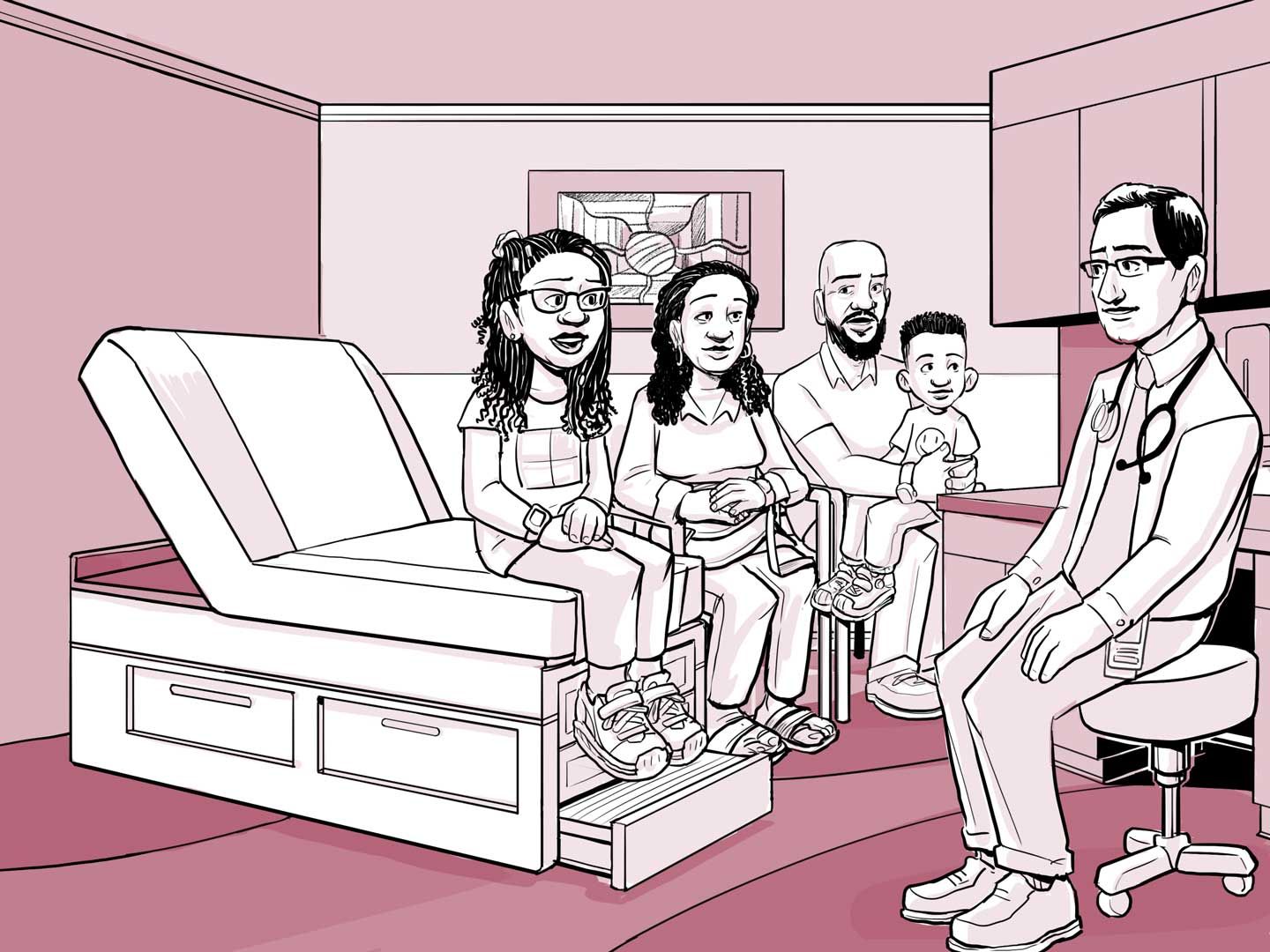Month 1
Nia is 13
Month 1
Nia is 13
Nia’s family decides on chronic transfusion therapy. They hope to stop problems from sickle cell disease without the extra risks from bone marrow transplant and gene therapy. Nia’s doctor explains the treatment plan, and the family agrees to begin.
Chronic transfusion therapy can stop a lot of sickle cell disease problems.
You get blood transfusion to put healthy red blood cells (from a donor) into your body.
If it works:
- You will have less pain.
- You will not need to go to the hospital as often as before.
- You will have a smaller chance of having a stroke.
- You will have a smaller chance of having a silent stroke. This is when there is damage to the brain without any outward signs of a stroke. It is also called a silent cerebral infarct.
- You will have a smaller chance of acute chest syndrome. This is when your sickle cells block the blood flow to your lungs.
- You will have less new organ damage from sickle cell disease, but it will not fix any organ damage you already have.
Chronic transfusion therapy is a big commitment.
There are risks and costs to consider.
Time
- You will spend a significant amount of time away from your normal life.
- You will go to the clinic at least once a month for a blood transfusion until your doctor thinks that it is safe to stop them.
- For each transfusion, you will spend a half or full day at the clinic.
- You and your caregivers may have to miss school, work, activities, and other events.
Risks
- You can have new health problems during and after treatment.
- You could develop iron overload from transfusions. Your doctors will do tests every year to check your iron levels. They will give you medicine if your iron levels get too high.
- Some people develop antibodies to the donated blood. This makes it difficult to find a blood donor.
- Some people develop hemolysis (breakdown of blood cells) after blood transfusion.
- Transfusions do not work for everyone. Some people can still have sickle cell related effects even after transfusion.
- Transfusions do not cure sickle cell disease, so you can still have some problems.
Cost
- The financial cost is different for everyone.
- It can be covered by your health insurance.
- There might be a co-pay or deductible cost.
- You can ask your doctor and your insurance company.
- There are other costs that may or may not be covered: loss of income due to time off work, transportation costs, and caregiver expenses.
Mental Health
- Treatment can also be a mental challenge.
- You will spend a lot of time away from your normal life. You will miss school, work, family activities, and other events.
Everyone is different. Your doctor can talk about the pros and cons of chronic transfusion therapy for you.
